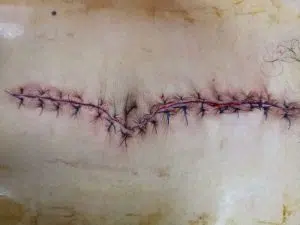Non-Healing Surgical Wounds
Non-Healing Surgical Wounds

Causes
Poor wound healing depends on the procedure, medical conditions, and other elements. These factors can increase the risk of complications.
Symptoms
The symptoms of a non-healing wound will depend on the area affected and severity. The surgeon and the care team will know the typical healing process. They check injuries for evidence of signs of infection and other complications.
Signs of infection may include:
